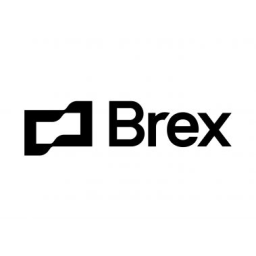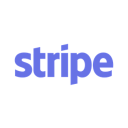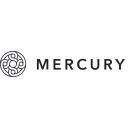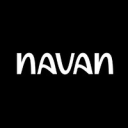Ramp vs Brex: Choosing the ideal financial solution for your company
- 01Ramp vs Brex: overview
- 02What's the difference between Ramp and Brex?
- 03Ramp pros and cons
- 04Brex pros and cons
- 05Ramp compared to Brex
- 06Brex compared to Ramp
- 07Features comparison
- 08Ramp vs Brex: Which is the best for your business?
- 09Promotions on Accounting software
- 10Alternatives to Ramp & Brex
Save up to $500 on Brex
Save up to $500 on Brex
If you're in the market for a financial management solution for your business, you're faced with a similar abundance of choices. Ramp and Brex are two prominent players in the field, each offering distinct advantages and potential limitations.
To assist you in making an informed decision for your company's financial management needs, we will compare Ramp vs Brex, delving into their key features, differences, and best-fit use cases. Armed with this knowledge, you'll be better positioned to determine which platform aligns with your specific business requirements, priorities, and goals.
Ramp vs Brex: overview
Ramp and Brex are prominent contenders in the world of financial management solutions, each offering a unique set of features and capabilities.
Ramp distinguishes itself with its focus on optimizing expense management and financial controls. With its intuitive platform, users can gain real-time insights into their spending, set budget limits, and track expenses seamlessly. Brex, on the other hand, is renowned for its business credit card offerings, designed to simplify corporate spending and provide rewards tailored to startups and growing businesses.
In our Ramp vs. Brex comparison, we'll delve deeper into their respective features, benefits, and drawbacks to assist you in selecting the ideal financial management solution that aligns with your company's specific financial needs and objectives. Continue reading to make an informed choice for your business.
What's the difference between Ramp and Brex?


Ramp and Brex are two financial management solutions with distinct differences that cater to different business needs.
One of the key distinctions between Ramp and Brex lies in their target audiences and core offerings. Ramp primarily focuses on providing businesses with comprehensive expense management and financial control tools. It's designed to help companies gain real-time insights into their spending, set budget limits, and efficiently track expenses. This makes Ramp particularly suitable for businesses looking to optimize their financial operations and maintain tight control over expenses.
In contrast, Brex is renowned for its business credit card offerings. Brex offers credit cards tailored to startups and growing businesses, providing benefits like higher credit limits, rewards, and expense management features. Brex's main appeal lies in its credit card solutions, which simplify corporate spending and provide unique rewards designed to benefit businesses in their early stages of growth.
Another significant difference between Ramp and Brex is their pricing structure. Ramp typically charges a monthly fee per user, allowing access to its comprehensive expense management platform. This pricing model can be advantageous for businesses that require precise control over who can access and manage financial data.
Brex, on the other hand, primarily generates revenue through credit card usage fees and interest charges. While they may offer additional expense management features, the core product revolves around their credit card offerings, which come with their own terms and conditions.
Ramp pros and cons
What are the advantages of Ramp?
- Real-time expense tracking: Ramp provides real-time visibility into company expenses, allowing you to monitor spending as it happens. This helps in identifying and addressing any discrepancies or unauthorized expenses promptly.
- Budget control: The platform allows you to set and enforce spending limits and policies, helping to prevent overspending and keeping budgets in check.
- Automation: Ramp automates various aspects of expense management, including receipt capture, expense categorization, and reconciliation, saving time and reducing manual data entry.
- Detailed insights: Ramp offers detailed analytics and reporting tools, enabling you to gain insights into spending patterns, trends, and areas where cost-saving measures can be implemented.
- Expense cards: Ramp provides physical and virtual expense cards that can be easily distributed to employees. These cards can be customized with specific spending limits and restrictions, enhancing control over corporate expenses.
What are the disadvantages of Ramp?
- Limited international usage: Ramp may not be as widely accepted internationally as some other corporate credit cards, which could be a limitation for businesses with extensive global operations.
- Pricing model: Ramp charges a monthly fee per user, which may not be cost-effective for businesses with a large number of employees who require access to the platform.
- Learning curve: While Ramp aims to simplify expense management, some users may still face a learning curve when adopting the platform, particularly if they are new to such tools.
- Integration challenges: Integrating Ramp with other financial systems and software can sometimes be complex and may require additional technical expertise.
- Customer support: Some users have reported challenges with Ramp's customer support, including delayed response times and difficulty in resolving certain issues.
Compare Ramp to other tools
Brex pros and cons
What are the advantages of Brex?
- Fast approval process: Brex offers quick and straightforward credit card approval for startups and growing businesses, often without requiring a personal guarantee or credit check.
- Generous rewards: Brex credit cards come with attractive rewards and benefits, including cashback on common business expenses, software discounts, and travel perks, making them appealing for businesses looking to maximize their rewards.
- Expense tracking: Brex provides expense tracking features and integrates with accounting software like QuickBooks, which can help streamline expense management and bookkeeping processes.
- Customizable cards: Businesses can customize Brex cards with specific spending limits, restrictions, and expense categories for individual employees or teams, enhancing control over corporate spending.
- Foreign transactions: Brex does not charge foreign transaction fees, making it a cost-effective choice for businesses with international operations or travel requirements.
What are the disadvantages of Brex?
- Targeted for startups: Brex is primarily designed for startups and younger businesses, which may limit its suitability for more established or larger enterprises.
- Limited credit access: While Brex offers credit to startups, the credit limits may not be as high as traditional corporate credit cards, potentially restricting spending capabilities for rapidly growing businesses.
- Annual fees: Some Brex cards may have annual fees, which can add to the overall cost of using the platform.
- No personal credit building: Brex does not report to personal credit bureaus, so using the card won't help build or improve an individual's personal credit history.
- Limited global acceptance: Brex may not be as widely accepted internationally as some other corporate credit cards, which could be a limitation for businesses with extensive global operations.
Compare Brex to other tools
Ramp compared to Brex
Ramp and Brex are both financial management solutions designed for businesses, but they have distinct focuses. Ramp excels in real-time expense tracking, budget control, and automation, making it ideal for companies looking to manage their expenses efficiently.
On the other hand, Brex is renowned for its startup-friendly credit card offerings, offering generous rewards and streamlined expense tracking. While Ramp prioritizes expense management, Brex primarily targets startups and growing businesses seeking credit card solutions.
Is Ramp better than Brex?
When comparing Ramp and Brex, it's essential to consider the specific needs of a business. Ramp stands out for its robust features in real-time expense tracking and budget control, which are indispensable for businesses aiming for meticulous financial management. Its automation capabilities further enhance its appeal for efficiency-focused companies.
Conversely, Brex shines in its niche, catering to startups and growing businesses with its startup-friendly credit card options. These cards are not only practical but also come with attractive rewards, making Brex a go-to choice for companies seeking financial tools that support their growth.
What is Ramp best used for?
Ramp is best used for businesses looking to gain precise control over their expense management. It excels in providing real-time expense tracking, enabling companies to monitor spending as it occurs and enforce budget limits.
With its automation features, Ramp simplifies receipt capture, expense categorization, and reconciliation, saving time and reducing manual data entry. This makes it an excellent choice for businesses aiming to optimize financial operations, maintain cost control, and gain insights into their spending patterns. Additionally, Ramp's customizable expense cards offer further flexibility for managing corporate expenses efficiently. Overall, Ramp is best suited for businesses seeking advanced expense management and financial control solutions.
Can Ramp replace Brex?
While Ramp and Brex are both valuable financial management tools for businesses, they serve different primary purposes. Ramp excels in expense management, real-time tracking, and budget control, making it ideal for businesses seeking to streamline financial operations and control costs. On the other hand, Brex is known for its startup-focused credit card solutions, offering rewards and benefits tailored to growing businesses.
While Ramp can replace certain aspects of expense management, it may not fully replace Brex's credit card offerings. The choice between the two depends on your specific needs, with Ramp serving as an excellent complement for enhanced expense management alongside Brex's credit card benefits.
Is Ramp cheaper than Brex?
The cost comparison between Ramp and Brex depends on your business's specific needs and usage. Ramp’s pricing structure typically charges a monthly fee per user, making it suitable for businesses with a controlled number of users who require access to its expense management platform. Brex, on the other hand, generates revenue through credit card usage fees and interest charges but does not charge additional fees for users.
Whether Ramp is cheaper than Brex depends on factors such as the number of employees who need access and the extent to which your business benefits from Brex's rewards and credit card offerings.
Is there a better Accounting software than Ramp?
While Ramp is recognized for its robust expense management capabilities, it's crucial to explore whether there might be a better-suited software for your unique financial management needs.
Several noteworthy alternatives to Ramp in the financial management space include Brex, Divvy, Expensify, and Zoho Expense. The determination of the ideal financial management solution depends on factors such as your company's size, spending patterns, and specific requirements. While Ramp excels in real-time expense tracking and budget control, other platforms may offer different features or pricing structures that better align with your business's financial management objectives.
Brex compared to Ramp
Brex and Ramp are both financial management solutions catering to businesses, but they serve distinct purposes. Brex is primarily renowned for its startup-friendly credit card offerings, providing rewards and benefits tailored to growing businesses.
In contrast, Ramp excels in expense management, with features such as real-time tracking, budget control, and automation, making it ideal for companies seeking to optimize spending and maintain financial control. While Brex focuses on credit card solutions, Ramp prioritizes expense tracking and management.
Is Brex better than Ramp?
Determining whether Brex is superior to Ramp depends largely on a business's specific requirements. For startups and expanding businesses, Brex offers a compelling package with its credit card solutions that are not only startup-friendly but also come with a suite of rewards and benefits designed to aid growth. This makes Brex particularly appealing to those in the early stages of business development, who can leverage these credit facilities to fuel their expansion.
On the other hand, Ramp's strength lies in its advanced expense management capabilities, such as real-time tracking and budget control, which are crucial for businesses aiming to tighten their financial oversight.
What is Brex best used for?
Brex is best utilized by startups and growing businesses seeking credit card solutions tailored to their unique needs. It is renowned for its credit card offerings that come with generous rewards, higher credit limits, and streamlined expense tracking. These benefits make it particularly valuable for companies aiming to manage expenses effectively while enjoying perks such as software discounts and travel rewards.
Brex's fast approval process, often without a personal guarantee, appeals to entrepreneurs and businesses in their early stages. Overall, Brex is best suited for those looking to leverage credit cards with specialized benefits to fuel their growth and streamline financial management.
Can Brex replace Ramp?
Brex and Ramp serve different primary functions, so the question of whether Brex can replace Ramp depends on your specific business needs. Brex excels in providing startup-friendly credit card solutions with rewards and benefits, while Ramp specializes in expense management, offering features like real-time tracking and budget control.
If your primary requirement is credit card benefits and financial rewards, Brex may meet your needs effectively. However, if you seek comprehensive expense management, expense tracking, and budget control, Ramp is better suited for those purposes.
Is Brex cheaper than Ramp?
The cost comparison between Brex and Ramp depends on your business's specific requirements and usage patterns. Brex’s pricing model often charges fees associated with credit card usage, including annual fees and potential interest charges. In contrast, Ramp typically charges a monthly fee per user for its expense management platform.
Whether Brex is cheaper than Ramp depends on factors such as the number of employees needing access to the platform, your spending patterns, and the extent to which your business benefits from Brex's rewards and credit card features.
Is there a better Online Banking software than Brex?
While Brex is well-known for its startup-friendly credit card solutions, it's essential to explore whether there might be better-suited software for your unique financial management needs.
Several notable alternatives to Brex in the financial management space include Ramp, Mercury, Spendesk, Stripe, and QuickBooks. Determining the ideal financial management software depends on factors such as your company's size, spending patterns, and specific requirements. While Brex excels in offering credit card benefits, other platforms may provide different features, pricing structures, or integrations that align more closely with your business's financial management objectives.
50,000 points for $100,000 deposits in Brex business accounts on Brex
Get 50,000 points for $100,000 deposits in Brex business accounts on Brex and up to $500 savings with Secret.
Features comparison
Brex Outshines Ramp with a Lucrative Rewards System for Business Expenses
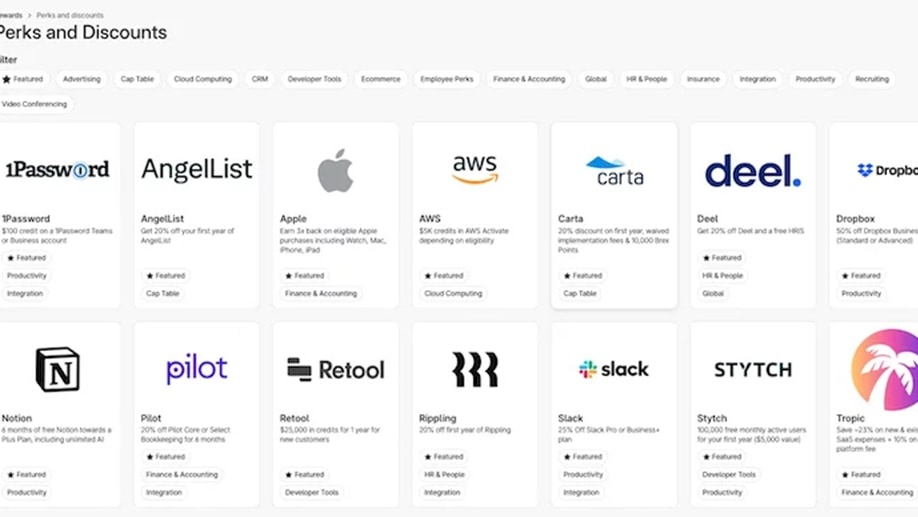
Brex holds an advantage over Ramp by offering a reward system for businesses. Businesses can earn up to 8x points on categories such as software, travel, and advertising. These points can be redeemed in versatile ways, from statement credits to travel benefits or transferring them to preferred airline or hotel loyalty programs.
In stark contrast, Ramp, while offering comprehensive expense management features, does not provide a comparable rewards system. The absence of such a system may be a crucial factor for businesses looking to maximize benefits and offset expenses through reward points.
Ramp Leads Over Brex in User-Friendliness and Ease-of-Use
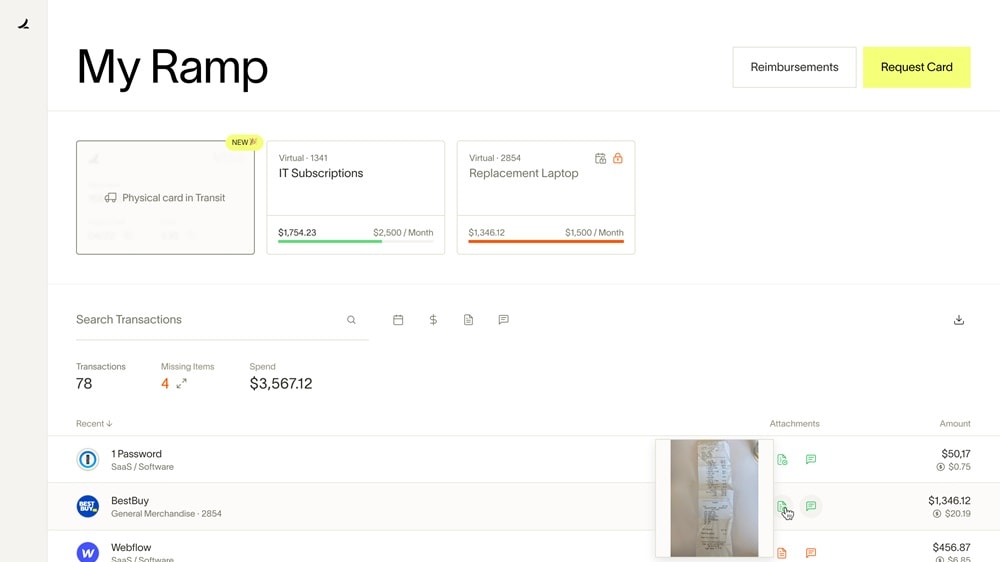
When it comes to ease-of-use, Ramp outshines Brex with its user-friendly interface. Ramp's intuitive design caters to users with minimal tech experience, ensuring smooth navigation. Its clean layout and well-structured toolset facilitate quick access to essential data. For example, Ramp simplifies expense tracking and budget control, enabling users to manage finances effortlessly.
On the contrary, while Brex offers robust functionalities, its interface may pose a steeper learning curve for newcomers. The complexity can hinder first-time users from efficiently exploring the platform's capabilities. For instance, setting up credit card preferences and rewards on Brex may require more effort.
Brex Outperforms Ramp as a Centralized Financial Management Solution

While both Ramp and Brex offer functionalities that aid budget management, Brex stands out as a more centralized financial platform. Brex offers businesses a multifaceted financial solution that encompasses various essential functions. Users can store and transfer funds, manage expenses, and even automate invoice payments, all from within the same platform.
For instance, Brex provides businesses with the convenience of settling invoices seamlessly, streamlining their accounts payable processes. This centralized approach allows for a more holistic and efficient financial management experience.
On the other hand, while Ramp offers real-time notifications for critical financial events, it doesn't provide the same level of all-encompassing financial management capabilities as Brex. If you prioritize a one-stop-shop for your financial needs, Brex's centralized platform stands as the preferred choice for streamlining your business's financial operations.
Ramp Surpasses Brex in Integration Capabilities for Long-Term Scalability and Adaptability
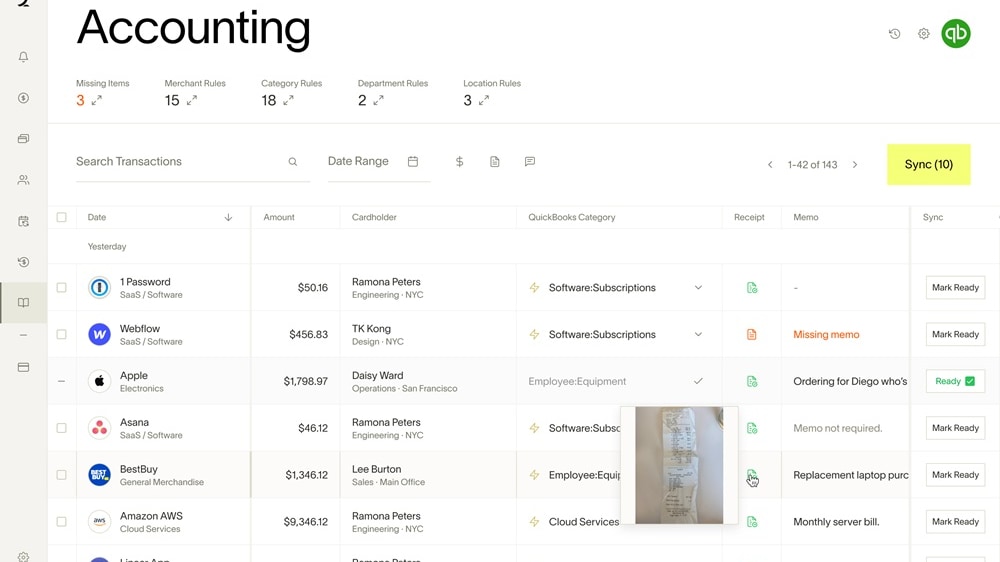
Turning to integration capabilities, both Ramp and Brex offer viable options, yet Ramp gains a slight edge. Ramp provides businesses with seamless integration options, offering immediate compatibility with popular accounting software and ERP systems. For instance, users can effortlessly connect Ramp with QuickBooks or NetSuite, enhancing their financial management efficiency from day one.
What sets Ramp apart is its commitment to expanding its integration ecosystem continually. This means users can anticipate future integrations with a broader spectrum of platforms, ensuring long-term adaptability and scalability.
On the other hand, while Brex does offer integration services with some prominent accounting software, its scope remains relatively limited in comparison to Ramp's robust integration offerings. If you're an entrepreneur seeking a platform that not only integrates effectively with your existing infrastructure but also provides room for future growth and expansion, Ramp emerges as the more versatile and future-proof choice for your financial management needs.
Ramp Leads in Customization, Offering More Flexibility Over Brex in Financial Dashboards
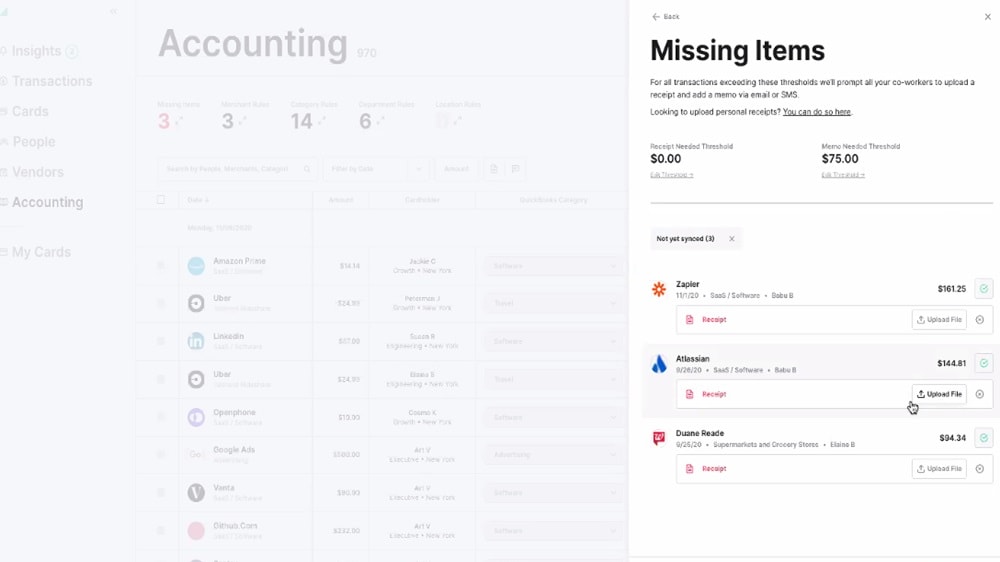
Both Ramp and Brex provide interactive dashboards for easy monitoring of financials. However, when it comes to customization features, Ramp takes the lead with a more comprehensive approach.
Ramp empowers users with extensive customization options, allowing them to tailor dashboards, reports, and data views to suit their specific requirements. For instance, users can create personalized financial reports that focus on key metrics most relevant to their business. This level of customization provides flexibility in how users manage and visualize their financial data.
On the other hand, Brex's dashboard customization, while present, may have limitations in terms of adaptability and tailored reporting compared to Ramp.
Ramp and Brex Excel in Technical Support, But Brex Offers More Personalized Assistance

Both Ramp and Brex boast robust technical support. Ramp extends support through user guides and video tutorials, offering valuable resources for users looking to navigate the platform independently. Additionally, they offer assistance through email and phone, ensuring users can reach out for prompt resolution of any issues or queries.
In contrast, Brex takes a more personalized approach by assigning a dedicated account specialist and customer success manager to each user. This ensures that users receive tailored assistance and guidance, addressing their specific needs effectively. Furthermore, Brex offers 24/7 support, catering to users across different time zones and ensuring assistance is available whenever it's required.
Ramp Surpasses Brex in Advanced Automation Capabilities for Financial Operations
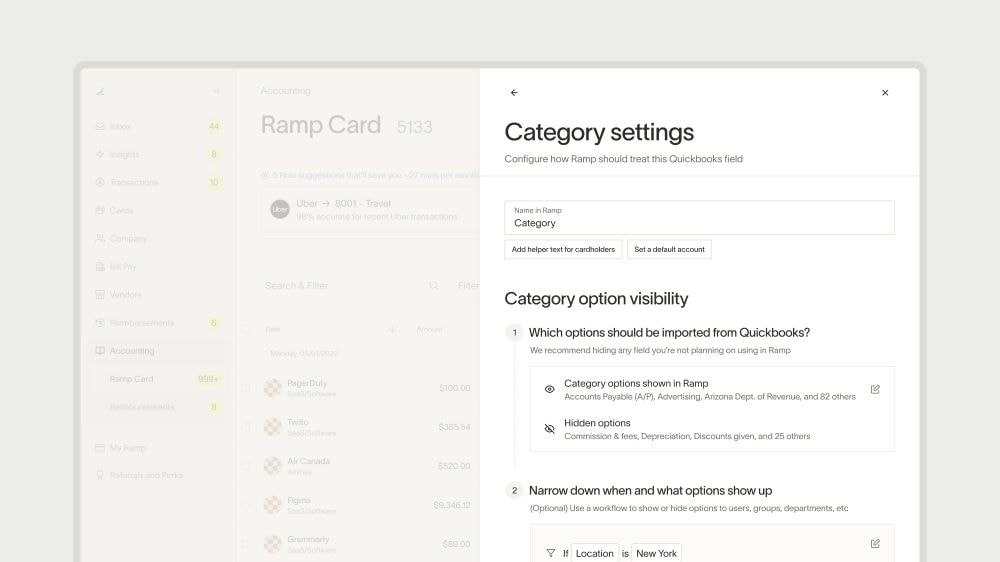
Both Ramp and Brex offer automated workflows as significant features, streamlining various financial processes. However, Ramp takes the lead in this aspect by offering advanced automation capabilities that extend beyond Brex's automated payment and reconciliation system.
Ramp's automation prowess includes the ability to automate repetitive tasks such as data entry and report generation. For example, Ramp can automatically capture and categorize expense receipts, reducing the manual effort required for expense management. This not only saves time but also minimizes the risk of errors, enhancing efficiency and accuracy in financial operations.
In contrast, while Brex offers automated payment and reconciliation features, it may not match the comprehensive task automation capabilities that Ramp provides. If your business prioritizes automation to simplify and expedite financial processes, Ramp's advanced automation features can significantly surpass Brex's offerings, delivering enhanced operational efficiency and precision.
Subscribe to our newsletters.
No FOMO here. Stay up-to-date on all the latest deals and news with our monthly newsletter straight to your inbox like 113,000+ entrepreneurs (+ Get 10% off on on our Premium Membership!)
Ramp vs Brex: Which is the best for your business?
Ramp is the best tool for you if:
- You prioritize extensive customization options for financial dashboards, reports, and data views to meet the specific needs and metrics of your business.
- Your business demands advanced automation for tasks like data entry and expense receipt categorization, aiming to save time and minimize errors in financial management.
- You prefer a user-friendly interface with intuitive design and layout, ensuring easy navigation and access for users with minimal technical experience.
- Seamless integration with popular accounting software and ERP systems like QuickBooks and NetSuite is essential for your financial management and operational efficiency.
- You value the ability to continually expand integration capabilities with a broader spectrum of platforms, ensuring long-term scalability and adaptability for your business.
Brex is the best tool for you if:
- You're looking for a centralized financial platform that combines fund storage, expense management, and automated invoice payments for a holistic financial management experience.
- Your business needs tailored assistance with a dedicated account specialist and customer success manager, offering personalized guidance and 24/7 support across various time zones.
- You value a rewards system, seeking to earn and redeem points in categories like software, travel, and advertising, with options for statement credits or travel benefits.
- As a startup or a growing business, you're seeking credit card solutions that are startup-friendly, offering generous rewards and streamlined expense tracking functionalities.
- You prefer a financial tool that, while robust, may have a more complex interface, offering in-depth functionalities suited for businesses that can navigate a steeper learning curve.
Alternatives to Ramp & Brex
Promotions on Accounting software
Start saving on the best SaaS with Secret.
Secret has already helped tens of thousands of startups save millions on the best SaaS like Ramp, Brex & many more. Join Secret now to buy software the smart way.



